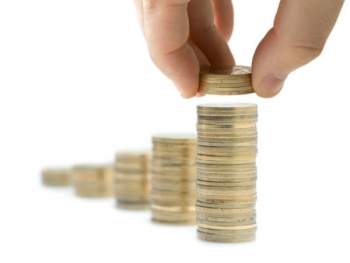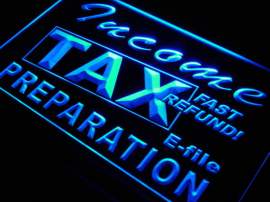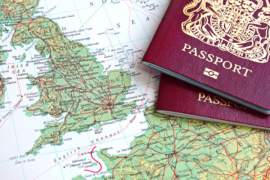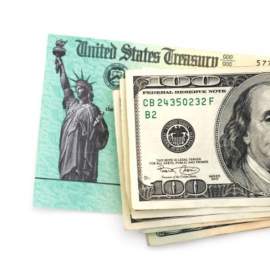
South Carolina Tax

Individual Income Tax Forms
Form SC1040 Individual Income Tax Return
Form SC1040X Amended Individual Income Tax Return
Corporate Income Tax Forms
Form SC1120 C Corporation Income Tax Return
Form SC1120S S Corporation Income Tax Return
Form SC1120 General Instruction
Sales Tax Forms
Exemption Form
Form ST-3 State Sales and Use Tax Return
Form ST-14 Claim For Refund For Sales Tax
Property Tax Forms
Form PT-100 Business Personal Property Return
Form PT-300 Property Return
Form PT-300A Manufacturing or Mining
Form PT-300B Non-Contiguous Manufacturing
Form PT-300D Corporate Headquarters Distribution Facility
Form PT-300E Leased Utility
Form PT-300F Leased Transportation for Hire
Form PT-300S Manufacturing Fee in Lieu of Tax
Form PT-300T Non-Manufacturing Fee in Lieu of Tax
Form PT-300X Improvement Schedule
Form PT-300Z Lease Schedule
Form PT-401 Application for Exemption
Primary Concerns:
Anyone who knows the history of South Carolina will recognize that the state is very passionate about doing things its own way, especially when it comes to its relationship with the federal government. South Carolina, like many states throughout the country is suffering through a poor economic climate and as a result has suffered through a drastic economic shortfall.
However, while South Carolina has sought to deal with this problem, they have done so in ways that many would criticize are determined more by political ideology than by pragmatic problem solving. And some other decisions could only be described as weird, such as the proposition in the state legislature that would ask that see the state currency uncoupled from the dollar to one based and minted strictly on gold and silver standard.
The chief decision initially based on ideology was the fact that South Carolina had initially refused federal stimulus money when its state was initially faced with severe budget shortfalls (state Governor Mark Sanford eventually relented and accepted federal aid). The state has otherwise shown an overall resistance to government aid of any kind.
In response, the state has implemented harsh budget cuts. Many of these were to be felt by the local court systems and medical programs, especially those related to disease prevention. The biggest hit was to the state's welfare system, which many criticized heavily in the face of South Carolina's 11.6% unemployment rate, which is over 1.7% above the national average.
One pragmatic tact that has been hotly contested, even within the same political party, has been an increase on the cigarette tax from $0.07 a pack to $0.57, which is still well below the tax in most states. The tax is still being contested as of early 2010, with it having been vetoed by Governor Sanford, though many feel that the legislature will override the veto in the next session.
The state has also given out tax credits to many companies to draw their business to South Carolina, which has already worked at getting Boeing to open up facilities in the state, which is seen as potentially creating needed jobs as well as corporate revenue.
It remains, however, that South Carolina was hit very hard by the recent economic crisis, and as a result, the road to recovery will not be easy. But if there is a road out, South Carolinians will likely travel it the way they always do: in their own way.
Income Tax:
All individuals who reside in South Carolina full time, and earn income within South Carolina are required to file an South Carolina tax return. Senior citizens who make less than $15,000 ($30,000 for couples filing jointly) and have no taxes withheld from their wages are exempt from having to file a state income tax return.
Part time residents are allowed to file as residents or nonresidents, depending on which is more advantageous to the taxpayer.
Income taxes in South Carolina are progressively taxed at a staggered rate over six brackets. All income below $2,630 has a tax rate of 2.5%, and between $2,631 and $5,260 the rate is 3% on all excess above $2,631. So if an individual makes $5,000 in income per year, then they will be charges 2.5% on the first $2,630 and then 3% on the subsequent $2,370. Between $5,261 and $7,890 the tax rate is 4% of excess above $5,261. The rate on excess between $7,891 and $10,520 is 5%, and between $10,521 and $13,150 it is 6%. Above $13,151 it is 7% of excess over the top base.
Corporate Income Tax:
Nearly all corporations who reside or do business in South Carolina are eligible to be taxed under state law, but the tax may be derived from different things. Corporate tax returns are required to have three components: a computation of income tax liability, computation of license fees (unless the organization is tax exempt), and an annual report of Corporations, upon which are assessed the taxable value of the corporation. Corporations which operate in many states, even if they are based in South Carolina, only has to pay sales tax on income derived in South Carolina.
Manufacturers or vendors of tangible personal products are taxed using an arithmetic average of property, payroll, and sales (which is always doubled). Businesses that do not sell tangible material are charged a Gross Receipts Tax, which taxes the gross income of the business.
The corporate income tax, on all taxed values, is a flat 5%. There is an annual corporate license tax equal to 0.001% of a businesses capital stock plus $15, with a minimal fee of $25. The state also does not recognize federal bonus depreciation.
Property Tax:
Property taxes in South Carolina are collected on both the state and local level, though values are determined at the county level by the county assessor. Both real and personal property is subject to property tax in South Carolina.
Amounts of taxes are determined on the county level, using a millage system, where 20 mills equals $20 per $1000. Many mill rates levied are very high, but the assessment ratios on property are actually far below market or use value.
Primary residences are only assessed at 4% of market value, while secondary real estate is assessed at 6%. Manufacturing property and utility property are assessed at 10.5% of market value. Railroads, Airlines, automotive carriers, and pipelines are assessed at 9.5% of market value. Agricultural properties are assessed by use value, privately owned property assessed at 4% and corporate owned assessed at 6%.
Personal Property is assessed at 10.5% of its depreciated value, meaning that it is priced on its resale value as is.
Sales Tax:
Sales taxes in South Carolina is 6%, and 7% specifically for lodging. Many localities also add 1 to 2% extra sales tax, and many restaurants also charge and additional 1 to 2% sales tax. The state no longer has a tax on unprepared food or prescription drugs. There is also a cap on sales tax for cars of $300 dollars.
In order to ease the burden on the extremely aged, customers over 85 are also entitled to a 1% reduction in sales tax statewide.
South Carolina also has the lowest cigarette tax in the county of only $0.07 per pack (recent legislation, still being contested, plans to raise this to $0.57 per pack).
Tax Forms:
The South Carolina personal income tax form is called the SC1040, and it has many variations depending on the nature of the return itself, such as the SC1040ES for estimate taxes.
The regular corporate tax return is called the SC1120, and it also has a number of variations as well.
NEXT: South Dakota State Tax





















